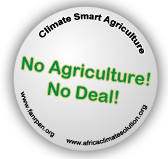 ACCID RSS newsfeed ACCID RSS newsfeed
China's efforts to combat climate change win praise from leading expert
30 October 2012, China Gate
URL: http://en.chinagate.cn/2012-10/30/content_26942122.htm
A global platform for carbon trading may be in place this decade, an official at one of the world's major environmental think tanks said.
China's emissions trading system, which is likely to be the world's second-largest carbon market by 2015, may be a major player if it is connected to the proposed world system, said Andrew Steer, president of the World Resources Institute.
The institute in Washington is a non-partisan organization that promotes policies to protect the global environment.
China has seven pilot emission trading projects, including those in Beijing, Shanghai and Guangdong Province.
"The idea of piloting is good; the government wants to look around and see which plan is most suitable and then use that nationally," Steer said.
Steer used to be the World Bank special envoy for climate change before joining the institute in August and is optimistic about a global carbon market.
Negotiators from 200 nations and regions agreed to work toward a global treaty taking effect in 2020 at the United Nations' climate change conference in South Africa in 2011.
"The global agreement is to be reached in 2015 and will become effective in 2020, as part of that global deal, carbon trading would be allowed," Steer said.
Even if this does not work out, countries and regions will still be able to trade with each other, Steer said.
Europe, China, Japan, South Korea, South Africa and Australia could trade with each other and have a credible, working market, even if some countries, like the United States, decide not to join the mechanism.
Trade rules can vary but what is vitally important is that measurement, reporting and verification procedures are consistent around the world, he said.
"Carbon trading is not a panacea for solving all the problems, but by allowing trading to take place, it's cheaper to address the overall problem," Steer said.
Most of the world's carbon trading originated in Europe under the emissions trading system.
The European Union has set a target to cut emissions by at least 20 percent by 2020. The economic crisis means that it's very easy to hit the target, therefore they don't need to buy too many carbon offsets from other countries, he said.
But if countries put a tougher cap on the trade and bring more countries into the system, that will drive the carbon price up, he said.
Steer said it's a "make or break" decade for addressing climate change.
A recent study found that 97 percent of experts agree that climate change is real and caused mainly by human activity.
"If we don't manage to peak in terms of global emissions by 2020, it would be very difficult to get where we need to get, to help the world's temperature rise below 2 degrees Celsius," he said.
Rich countries have the primary obligation, Steer said.
"China's efforts are substantial, but the world as a whole is not doing enough," he said.
"Sometime in the 2020s, countries like China will need to peak if we want to address the problem," he said.
However, many experts have low expectations for the upcoming climate change meeting in Doha, Qatar, partly due to the state of the global economy.
"There are some technical agreements that need to be agreed ... but certainly no breakthrough is likely. It will not be as dramatic or glamorous as the last three," Steer said.
|

